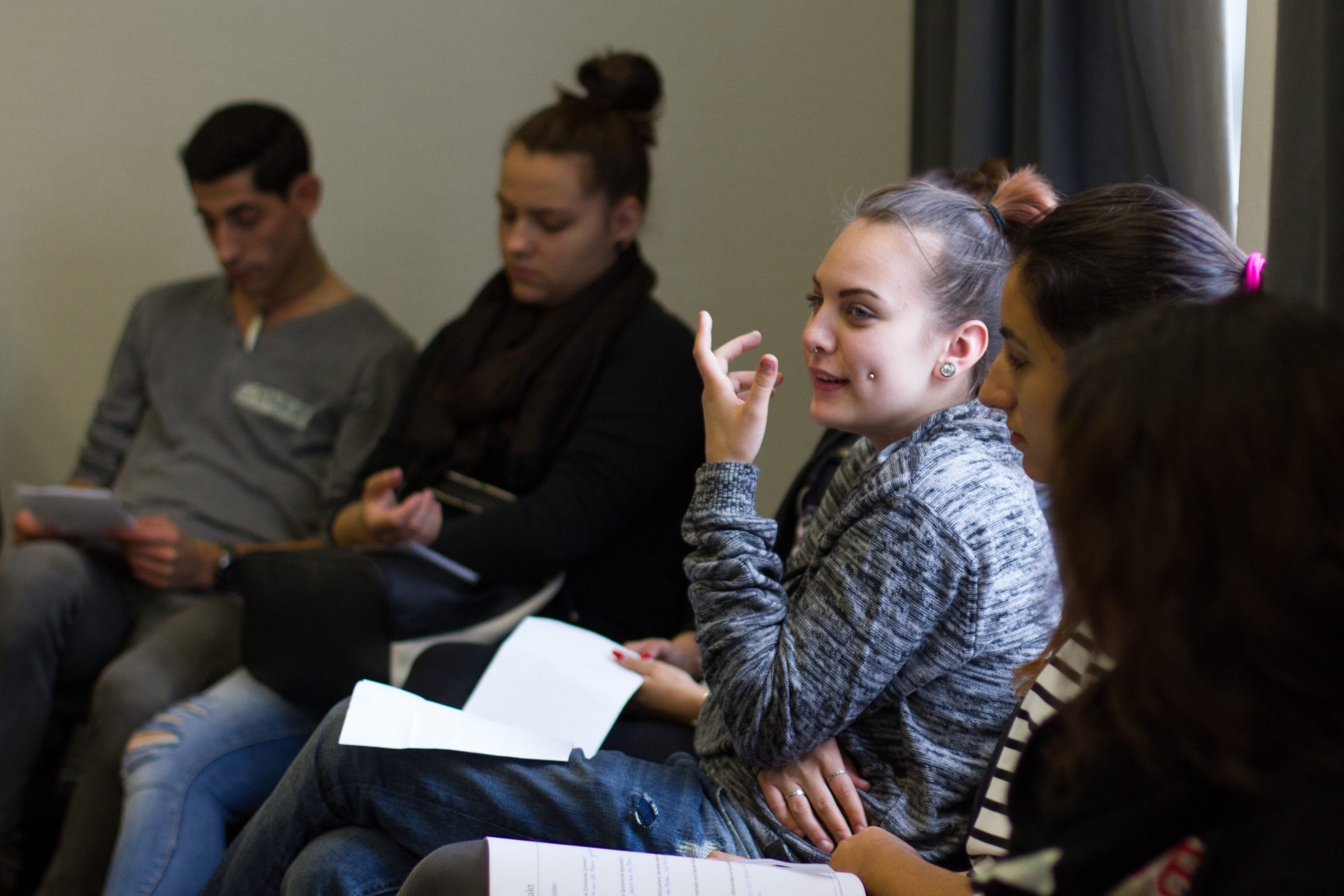At the vocational school for fashion and design in Zurich (BSMG), SAD led a workshop on intercultural communication. The young people looked at foreign cultures abroad and in Switzerland, and identified reasons for misunderstanding as well as possible solutions.
“Why do they do that so differently to us? Understanding each other across cultural borders”. The name of the workshop didn’t only indicate the key themes but also encouraged the students to question their perception of their own identity as well as foreign identities, from the start: “What was my last foreign holiday like? And what do I experience in my daily life in Switzerland?” SAD employee Anna Coendet designed the workshop to include lively exchange with the students. Through group work and role-play, the young people looked at the concept of culture and explored the nature of communication between people. They located possible sources of conflict between cultures and exchanged appropriate ways of resolving this conflict.
Based on everyday examples from Italy, Peru, Niger and Japan, the young people reflected on their own self-conception of culture. How do people greet each other in Japan? What greeting customs do we know in Switzerland? How would I deal with the different concept of time in Niger? As a group, the students discussed the fact that culture is just one of many things that establishes identity. Often, other factors such as age, gender and personality define interactions between people.
Play-based approach to intercultural understanding
The SAD workshop was part of the BSMG’s project week on the theme of respect. The organisers got SAD involved because of their experience in the field of integration and intercultural communication. SAD has steadily developed its play-based approach to intercultural understanding through projects such as “Xenophilia”, “Sport and cultural diversity” or “Integration through sport in Hungary”.
At the BSMG, a respectful approach to different cultures is more than just theory. Nearly 60 percent of the future hairdressers, florists, beauticians and clothes designers at the vocational school are from a migrant background. In fact, conflict between students of different backgrounds has been crucial in determining the theme of this year’s project week. In other courses the students visited mosques, synagogues and churches, tried Capoeira and gave their thoughts on cultural diversity in a rap session with Swiss musician Gimma. “Respect means to me: to accept other cultures and that everybody has to make a step towards each other so that we can be mutually supported.“ This conclusion of a participant sums up the perception of many of the students. The young people not only liked the creative approach to the topic but also appreciated getting new and surprising insights on other religions and cultures.

